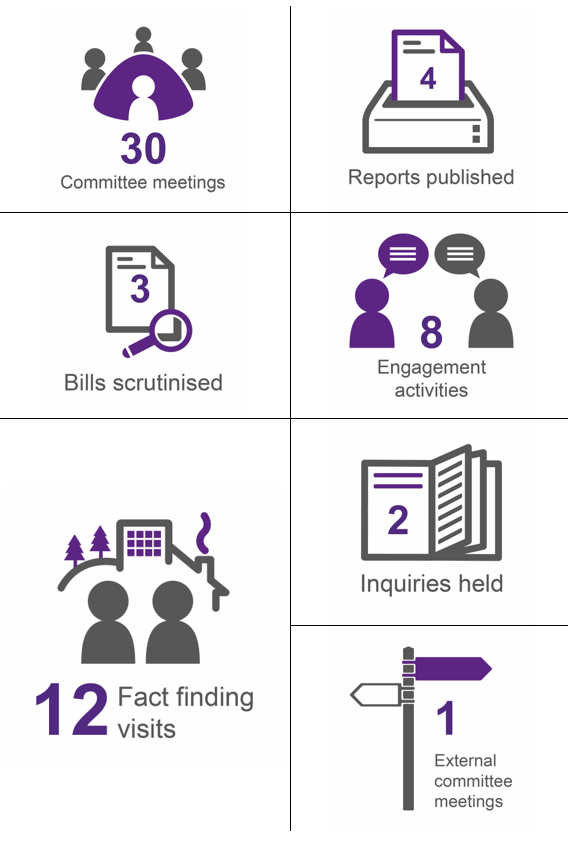Equalities and Human Rights Committee
Equalities and Human Rights Committee Annual Report 2018-19
Introduction
This report covers the work of the Equalities and Human Rights Committee during the Parliamentary year 12 May 2018 to 11 May 2019. During the parliamentary year the Committee met 30 times. Six of these meetings were wholly in private, four in public and 20 were a mixture of public and private.
Membership changes
Previous Members of the Committee during the reporting year:
Jamie Greene (Con) (29 June 2017 - 17 May 2018)
Christina McKelvie (SNP) (7 June 2016 - 6 September 2018)
Inquiries and reports
Prisoner voting in Scotland
Our report on Prisoner Voting in Scotland was published on 14 May 2018. Evidence received from a range of stakeholders, including academics and the Prison Reform Trust, challenged the public's view on the purpose of prison, that prisoners are still citizens and that removing the right to vote was an additional punishment. As such we recommended to the Scottish Government that all prisoners should be allowed to vote but recognised this could not be achieved in isolation and asked for more work to be carried out, with a particular focus on the impact on victims of crime.
The Scottish Government did not accept this recommendation as it did not think this was required in order to comply with the European Convention on Human Rights. However, they agreed to hold a public consultation on a proposal to allow some prisoners to be able to vote, in line with our recommendation to consult widely on any proposed change.
The Scottish Government’s consultation took place over March 2019 and its results will be used to form part of the forthcoming Electoral Franchise Bill.
Getting Rights Right: Human rights and the Scottish Parliament
Having our equalities remit extended to explicitly include human rights in September 2016 enabled us to look more strategically at human rights within the Parliament. We examined whether the Scottish Parliament was adopting the best possible approach to scrutinising, promoting and delivering on human rights. The Commission on Parliamentary Reform also asked us to investigate whether the Parliament needed to strengthen its role as a human rights guarantor.
Our inquiry found there were challenges to human rights protections - Brexit, austerity and the barriers faced by those with protected characteristics and other vulnerable or marginalised groups, when accessing services.
In the last year we continued our evidence taking, holding a video conference with the UN’s Office of the High Commissioner for Human Rights and the Inter-Parliamentary Union to hear about the international draft principles for Parliaments and human rights. We also held our fourth of four public focus group sessions in Galashiels as part of our engagement activities to gather written and oral evidence from a wide range of stakeholders from across Scotland.
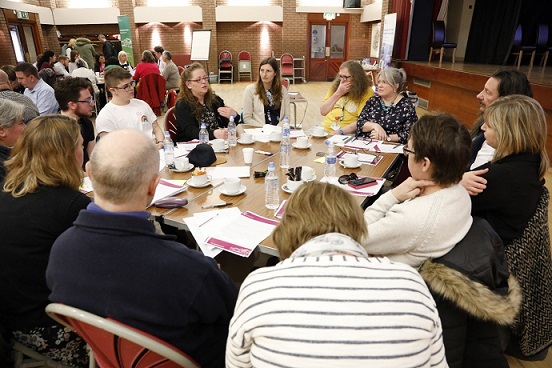
We published our findings and recommendations in our report Getting Rights Right: Human Rights and the Scottish Parliament on 26 November 2018. We made recommendations to the Parliament, the Scottish Government and Scotland’s devolved National Human Rights Institution the Scottish Human Rights Commission. Our main recommendations to the Scottish Government were for more consistent human rights information to be provided with Bills to improve systematic legislative scrutiny and to develop a post-Brexit monitoring mechanism to ensure human rights protections are not being eroded and that activity to advance human rights in the EU can be tracked. A timetable for Scottish Government activity on international conventions and treaties was also sought. For the Scottish Parliament we considered human rights capacity should be supported through specific training and professional development. We would like to thank our adviser, Murray Hunt for his advice and expertise on human rights matters.
On 10 December we held a special ‘Human Rights Takeover!’ event in the Parliament to launch our report and mark both International Human Rights Day and the 70th Anniversary of the Declaration of Human Rights. Over 150 attendees heard from a range of speakers and panellists including the First Minister Nicola Sturgeon MSP; Convener of the Equalities and Human Rights Committee, Ruth Maguire MSP: Bianca Jagger, President of the Bianca Jagger Human Rights Foundation; Judith Robertson of the Scottish Human Rights Commission, and Members of the Children's Parliament and Scottish Youth Parliament. A video of the event is available on Scottish Parliament TV.
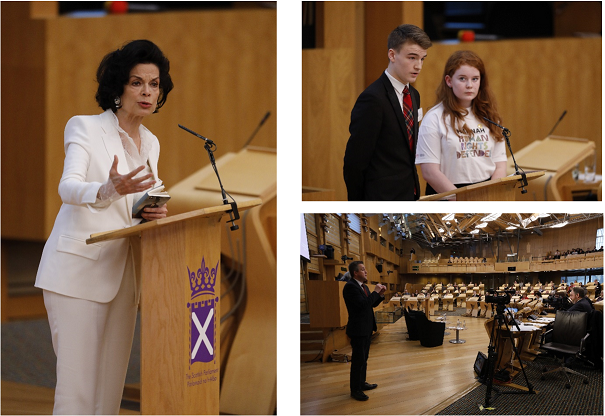
The Scottish Government responded to our report commending it as a timely, welcome and significant document and outlining their preliminary comments on our recommendations. This included their intention to establish a national taskforce to develop a new “Human Rights Framework for Scotland” post- Brexit, which overlapped with our proposals for monitoring post-Brexit. In its subsequent response, the Scottish Government provided details of its forthcoming international human rights activity, which will assist with planning our work programme in this area.
A detailed plan to implement the work arising from the report is now being developed and we will liaise closely with the Scottish Government and other interested parties to deliver on these recommendations.
Other inquiry work
On 14 June 2018 we undertook a roundtable evidence session with key stakeholders on our inquiry report Hidden Lives, New Beginnings: Destitution, Asylum and Insecure Immigration Status in Scotland. In line with our recommendations, COSLA have been working with the Scottish Government to produce guidance to support local authorities in meeting the needs of destitute migrants and working to create a No Recourse to Public Funds network to share best practice. Other stakeholders highlighted however, that there are still issues with access to accommodation, health and justice and more work needs to be done in bringing the Scottish public and third sectors to work together. We will give further consideration as to what devolved elements we can pursue within our work programme.
On 21 June we also undertook follow up evidence on our inquiry report It is not Cool to be Cruel: Prejudice-based bullying and harassment of children and young people in schools. We were encouraged to hear from key stakeholders that there had been a real strengthening of the national policy framework and guidance with an emphasis on prejudice-based bullying. However, we also heard that in practice further work was needed to improve the capacity of schools and teachers to take preventative and reactive measures against bullying through more support and training. On data collection of bullying incidents, evidence from our draft budget scrutiny showed £4 million has been invested in the SEEMis programme so that schools can collect better data on types of bullying.
Monitoring progress of the implementation of our report recommendations is crucial to effective scrutiny. We have committed to undertaking regular follow-ups with key stakeholders and the Scottish Government.
Draft Budget Scrutiny 2019-20
In June 2018 we agreed our approach to pre-scrutiny of the Scottish Government’s Draft Budget 2019-20. As part of that approach, we agreed to maintain our focus on the strategic issues arising from our earlier budget inquiry work, Making the Most of our Equalities and Human Rights Levers, such as:
Improving equalities data
Mainstreaming of equalities in the budget
The National Performance Framework and outcomes
Public authority implementation of national equality priorities
Budget scrutiny and the Public Sector Equality Duty
Integrating human rights in the budget process
We took evidence from local authority witnesses in policy, planning and youthwork as well as the Scottish Human Rights Commission, the Scottish Government’s Equality Budget Advisory Group and the Equality and Human Rights Commission throughout October. On 20 December we took evidence from Christina McKelvie, Minister for Older People and Equalities and were encouraged to hear of plans in place to address the issues we raised including gathering data with stakeholders and developing a gender index. We were also encouraged to hear that an independent chair had been introduced and appointed to the equality budget advisory group, to ensure progress with equalities and human rights being mainstreamed across the whole government.
Brexit related Statutory Instruments
On the 29 November we considered one statutory instrument, the Equality (Amendment and Revocation) (EU Exit) Regulations 2018 which proposed to address defects in relation to the operation of the Gender Recognition Act 2004 and the Civil Partnership Act 2004 as a result of the UK’s withdrawal from the European Union. We gave our consent for the UK Government to legislate using the powers under the European Union (Withdrawal) Act 2018.
Petitions
We have had no petitions referred to us over the course of the year.
Petition PE1372: by Friends of the Earth Scotland, in relation to access to justice on environmental matters, was referred to the previous Equal Opportunities Committee. We are keeping a watching brief on matters that might resolve aspects of the petition.
One off sessions
On the 6 December we held an “Ask the Minister” question session with Christina McKelvie, the Minister for Older People and Equalities, on the equalities and human rights area of her portfolio. For this session we crowdsourced questions from members of the public via Twitter and Facebook and put them to the Minister. Issues considered ranged from gender representation on public boards to sexual harassment in schools and accessibility of public transport and pavements for those with disabilities.

Following our report on prejudice-based bullying and harassment in schools the Young Women Lead (YWL) Committee undertook their own inquiry on sexual harassment in schools in July 2017. The YWL Committee is a leadership programme for women under 30 living in Scotland. The programme is a partnership between the YWCA and the Scottish Parliament.
On the 13 December, following publication of their report, we invited representatives from the YWL Committee to answer questions about their inquiry. We then questioned, John Swinney, Deputy First Minister and Cabinet Secretary for Education and Skills, on how he intended to implement the recommendations of the YWL report.
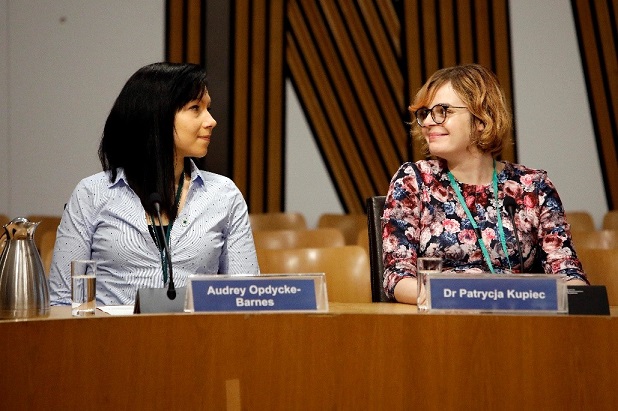
Legislation
Historical Sexual Offences (Pardons and Disregards) (Scotland) Bill
On 17 May we considered the Historical Sexual Offences (Pardons and Disregards) (Scotland) Bill at Stage 2. Historically, the law in Scotland criminalised consensual sexual activity between men. The Bill's purpose is to correct any remaining “discriminatory effect” of these laws by granting all men convicted of such offences in Scotland (living and posthumously if deceased) an automatic pardon. The Bill also allowed for these criminal convictions to be disregarded (removed from a criminal record) if the convicted person applied to the Scottish Government.
Age of Criminal Responsibility (Scotland) Bill
The Age of Criminal Responsibility (Scotland) Bill was introduced on 13 March 2018. The main aim of the Bill is to raise the age of criminal responsibility in Scotland from 8 years old to 12 years old.
As lead Committee appointed to consider the general principles of the Bill, we took written and oral evidence from a range of stakeholders, including legal and youth criminal justice practitioners between September and October 2018. We also carried out fact-finding visits to the Children’s Hearing System and three secure accommodation units, including Howdenhall in Edinburgh, Kibble in Paisley and St Mary’s in Bishopbriggs, where we had an opportunity to speak to young people with experience of the youth justice system.
To reach more young people we developed a Toolkit to help discussion of the Bill in school classes, youth or community groups. Teachers and facilitators then reported back what the groups thought about the Bill's proposals. Between 27 April and 6 July 2018, 31 schools and over 1000 secondary and 200 primary aged students participated.
We also worked with the Parliament Outreach Team to deliver a workshop on the Bill at the Scottish Youth Parliament sitting in Kilmarnock on 21 October 2018.

We published our Stage 1 report on 7 November 2018. We agreed with the general principles of the Bill to raise the age to 12, however struggled to reach a shared view on whether 12 was a sufficiently high age to achieve the outcomes sought and missed an opportunity to realise and protect the rights of more children and young people in Scotland.
After a revision by the United Nations asking States to increase their minimum age of criminal responsibility to 14, we took evidence at Stage 2 on amendments to further raise the age of criminal responsibility and criminal prosecution from 12 to 14 or 16 to inform formal consideration of the amendments on 31 January and 7 February. We held a video conference with Professor Ann Skelton, member of the UN Committee on the Rights of the Child and Chair of the Working Group on Revision of General Comment No.10, which covers children's rights in juvenile justice, including the minimum age of criminal responsibility. In addition, we also invited all those who had written to us at Stage 1 to share their written views on the proposed amendments. Amendments to raise the age of criminal responsibility were unsuccessful. Stage 3 of the Bill was completed on 7 May.
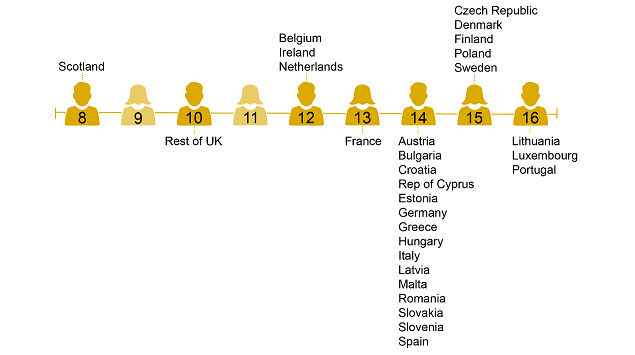
Children (Equal Protection from Assault) (Scotland) Bill
The Children (Equal Protection from Assault) (Scotland) Bill, was introduced in the Scottish Parliament on the 6 September 2018 by John Finnie MSP. As lead Committee we considered the general principles of the Bill. The purpose of the Bill is to end the physical punishment of children by parents or those with caring responsibility for a child. The Bill would remove the defence of 'reasonable chastisement' which can be used to justify using physical force on a child.
We held a 12-week public call for views on the Bill from the 2 November 2018 to 25 January 2019 and received over 440 written responses, with around 48 of those from organisations. We also took oral evidence from a range of stakeholders including legal, policy, charity, and faith-based perspectives and the Member in Charge throughout February and March 2019.
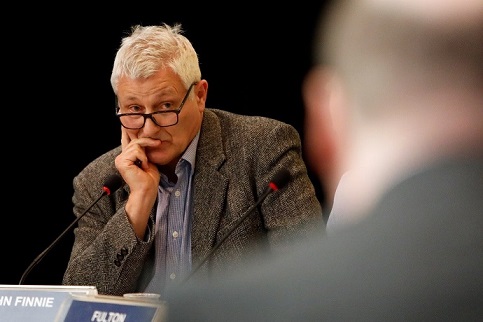
Given the topic of the Bill, we were keen to hear from people who would be impacted by the Bill but wouldn’t normally engage with the Committee. We undertook several engagement activities to hear from parents, grandparents, carers and children. From December to March we encouraged people around Scotland to host a Meeting in a Box!. This was a resource which contained tools to facilitate a conversation about the Bill and send the thoughts of a community group back to the Committee. We received 10 responses representing approximately 300 people.
During January and February 2019, we undertook four external visits. We spoke to parents, carers and children at Midlothian Sure Start Grandparents group, Dads Rock in Edinburgh, Messy Church in Pollokshields and YMCA Kirkcaldy to hear their views on the proposed Bill as well as holding a workshop with the Scottish Youth Parliament.
In March 2019 we undertook a further external visit to Skye where we visited Bun-sgoil Ghàidhlig Phort Rìgh (Gaelic primary school) and Portree High School before meeting with a local group of young carers and a parent and child group. Following this, we held a formal Committee meeting in Portree on 15 March to take evidence from local faith groups and held a public Q&A session on issues raised by the Bill.
Continuation of Stage 1 will take place in the next parliamentary year.
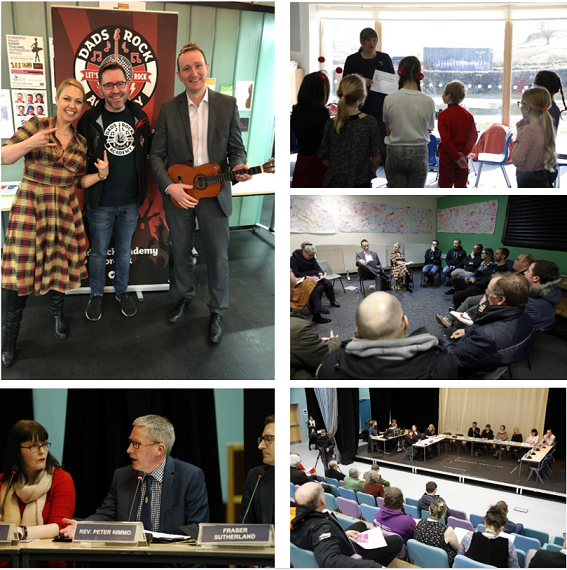
Equalities and engagement
Equalities is a central component not only of our remit as a Committee but also in our approach to our work. We have always focussed on improving the accessibility of both our and the wider Parliament’s work to a variety of audiences to make it more open, accessible and representative.
This year we have undertaken three video conferences to hear evidence from expert witnesses in Geneva and Oklahoma, where giving evidence in person would have been difficult.
We have been keenly aware of the need to empower the voices of those least heard in our political and parliamentary discourse. This has been especially true for the voices of young people and children.
We have heard directly from children as young as eight in our external visits and engagement work with schools and other groups, during our consideration of both the Age of Criminal Responsibility (Scotland) Bill and Children (Equal Protection from Assault) (Scotland) Bill.
As noted throughout the report, over the last year we have taken the time to undertake several innovative engagement activities and external visits and created opportunities for those that have been involved with our work to see or hear what happened with their views.
We continue to try to grow our twitter account, so we can reach out to those who use social media and currently have 2,617 followers.
Below is a full timeline of the external visits and other engagement activities undertaken by us during the Parliamentary year 12 May 2018 to 11 May 2019:
27 April – 6 July 2018: Age of Criminal Responsibility (Scotland) Bill Toolkit.
14 May 2018: External Visit - Galashiels public focus group on the Human Rights and Scottish Parliament Inquiry.
21 October 2018: Workshop with Scottish Youth Parliament on the Age of Criminal Responsibility (Scotland) Bill.
22 October 2018: External Visits to three secure units for children and young people on the Age of Criminal Responsibility (Scotland) Bill.
6 December 2018: “Ask the Minister” crowdsourced question session with the Minister for Older People and Equalities.
10 December 2018: Human Rights Takeover! Event.
13 December 2018: Young Women Lead Committee session.
11 January - 8 March 2019: Meeting in a Box!, Children (Equal Protection from Assault) (Scotland) Bill.
21 January – 26 February 2019: External Visits to four Parent/Carer and child groups, Midlothian Sure Start Grandparents group, Dads Rock Edinburgh, Messy Church Pollokshields and YMCA Kirkcaldy, Children (Equal Protection from Assault) (Scotland) Bill.
17 March: Workshop with the Scottish Youth Parliament, led by the Parliament’s Outreach team, on the Children (Equal Protection from Assault) (Scotland) Bill.
14 -15 March 2019: External Visit to Skye, Bun-sgoil Ghàidhlig Phort Rìgh [Gaelic primary school], Portree High School, a young carers group, a parent and child group, a formal public Committee meeting and a public Q&A session.
Committee statistics infographic
